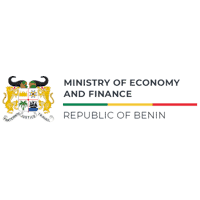- Type of Government: Presidential Republic
- Population: Approximately 13 million
- GDP: Around $17 billion USD
- Corporate Tax Rate: 30%
- Personal Income Tax Rate: Progressive, up to 35%
- Major Exports: Cotton, cashew nuts, textiles, palm products
- Major Imports: Foodstuffs, capital goods, petroleum products
Doing Business with Benin
A comprehensive guide to doing business, exporting, investing, and manufacturing in Benin.
Exporting to Benin involves several steps to ensure compliance with local regulations. Here’s a detailed guide:
-
Conduct Market Research
- Analyze the demand for your product in Benin.
- Identify potential competitors and market entry strategies.
-
Verify Product Compliance
- Ensure your product meets Beninese standards and regulations.
- Contact the Benin Agency for Standardization and Quality Control (CEBENOR).
- CEBENOR Website
-
Register Your Business
- Ensure your business is legally registered to export.
- Contact your local Chamber of Commerce for necessary documentation.
-
Obtain Necessary Certifications
- Identify any required certifications or licenses for your product.
- Consult with Benin Customs for guidance.
- Customs Website
-
Understand Tariffs and Taxes
- Check applicable import duties and taxes for your goods.
- Use Benin’s tariff schedule for detailed information.
-
Arrange Logistics and Shipping
- Choose a reliable shipping company familiar with logistics in Benin.
- Ensure all shipping documents are accurately completed.
-
Prepare Documentation
- Include commercial invoices, packing lists, and certificates of origin.
- Ensure compliance with Beninese customs requirements.
-
Customs Clearance
- Work with a customs broker to facilitate the clearance process.
- Contact Benin Customs for detailed procedures.
- Customs Website
-
Distribution and Sales
- Establish distribution channels within Benin.
- Consider partnerships with local businesses for effective market penetration.
Key Contacts
- Benin Agency for Standardization and Quality Control (CEBENOR)
- Website: cebenor.bj
- Benin Customs
- Website: douanes.bj
Importing goods into Benin involves several steps to ensure compliance with local regulations. Here’s a detailed guide:
-
Research Import Regulations
- Understand the import requirements for your goods.
- Consult the Benin Customs website for regulations.
- Customs Website
-
Register Your Business
- Ensure your business is registered and has the necessary licenses.
- Contact the Benin Chamber of Commerce for registration details.
- Chamber of Commerce Website
-
Check Product Compliance
- Ensure your products meet Beninese standards and regulations.
- Contact the Benin Agency for Standardization and Quality Control (CEBENOR).
- CEBENOR Website
-
Understand Tariffs and Taxes
- Check applicable import duties and taxes for your goods.
- Use Benin’s tariff schedule for detailed information.
-
Arrange Shipping and Logistics
- Select a reputable shipping company.
- Ensure compliance with shipping and labeling requirements.
-
Prepare Import Documentation
- Include commercial invoices, packing lists, and certificates of origin.
- Verify documentation with Benin Customs.
-
Customs Clearance
- Work with a customs broker to facilitate the clearance process.
- Pay any duties and taxes required for the import.
-
Receive and Distribute Goods
- Arrange for the delivery and distribution of goods upon clearance.
- Establish partnerships with local distributors if needed.
Key Contacts
- Benin Customs
- Website: douanes.bj
- Benin Chamber of Commerce and Industry
- Website: ccib.bj
- Benin Agency for Standardization and Quality Control (CEBENOR)
- Website: cebenor.bj
Incorporating a company in Benin involves several key steps. Here’s a detailed guide:
-
Choose a Business Structure
- Decide on the legal form of your company (e.g., SARL, SA).
- Consult with a legal advisor to choose the best structure for your needs.
-
Select a Company Name
- Ensure the name is unique and complies with Beninese regulations.
- Verify availability through the Benin Chamber of Commerce and Industry.
- Chamber of Commerce Website
-
Prepare Incorporation Documents
- Draft the Articles of Association.
- Include details of directors, shareholders, and registered office.
-
Open a Bank Account
- Deposit the minimum required capital in a Beninese bank.
- Obtain a certificate of deposit.
-
Submit Incorporation Documents
- File the necessary documents with the Centre de Formalità©s des Entreprises (CFE).
- Pay the registration fee (approximately $100 USD).
-
Obtain a Tax Identification Number
- Register with the Tax Authority to obtain a Tax Identification Number (NIF).
-
Register with Social Security
- Register with the Caisse Nationale de Sà©curità© Sociale (CNSS) if you plan to hire employees.
-
Obtain Necessary Permits and Licenses
- Depending on your business activity, additional permits may be required.
Key Contacts
- Benin Chamber of Commerce and Industry (CCIB)
- Website: ccib.bj
- Centre de Formalità©s des Entreprises (CFE)
- Contact through the Chamber of Commerce website.
Setting up a manufacturing plant in Benin involves several steps. Here’s a detailed guide:
-
Conduct Market Research
- Analyze local demand and industry trends.
- Evaluate potential competitors and supply chain logistics.
-
Choose a Suitable Location
- Identify industrial zones with necessary infrastructure.
- Contact the Benin Investment and Export Promotion Agency (APIEx) for available sites.
- APIEx Website
-
Register Your Business
- Incorporate your company in Benin.
- Follow the steps for business registration through the Centre de Formalità©s des Entreprises (CFE).
-
Obtain Necessary Permits
- Apply for construction and environmental permits.
- Contact the Ministry of Environment for specific requirements.
-
Secure Financing
- Explore funding options through local banks or investment agencies.
- Consider government incentives for manufacturing.
-
Design and Construct the Facility
- Hire local architects and contractors familiar with Beninese regulations.
- Ensure compliance with building codes and safety standards.
-
Install Equipment and Machinery
- Import necessary machinery, ensuring compliance with local regulations.
- Coordinate with Benin Customs for smooth importation.
- Customs Website
-
Recruit and Train Staff
- Hire local talent and provide necessary training.
- Contact the Benin Labour Office for assistance.
-
Register for Taxation
- Obtain a Tax Identification Number (NIF) and register for any applicable taxes.
-
Begin Operations
- Ensure all systems are in place and test the production line.
- Implement quality control measures.
Key Contacts
- Benin Investment and Export Promotion Agency (APIEx)
- Website: apiex.bj
- Benin Customs
- Website: douanes.bj
Registering a trademark in Benin involves several steps to ensure legal protection of your brand. Here’s a detailed guide:
-
Conduct a Trademark Search
- Check if your trademark is available and not already registered.
- Use the African Intellectual Property Organization (OAPI) database.
- OAPI Website
-
Prepare Your Application
- Gather necessary information: trademark representation, goods/services classification, and applicant details.
-
Submit Your Application
- File the application with OAPI, as Benin is a member state.
- Ensure all documents are complete and accurate.
-
Pay the Application Fee
- The basic fee is approximately $500 USD, but it may vary based on the number of classes.
-
Examination Process
- OAPI will review the application for compliance and potential conflicts.
- Respond to any objections or requests for additional information.
-
Publication and Opposition
- If approved, the trademark is published for opposition.
- There is a period for oppositions (usually six months).
-
Registration and Certification
- If no oppositions arise, the trademark is registered.
- Receive a certificate of registration from OAPI.
-
Maintain and Renew the Trademark
- Trademarks are valid for ten years and can be renewed indefinitely.
- Submit renewal applications before expiry to maintain protection.
Key Contacts
- African Intellectual Property Organization (OAPI)
- Website: oapi.int
Resolving commercial disputes in Benin involves several steps and options. Here’s a guide on the process:
-
Attempt Negotiation
- Start by negotiating directly with the other party to find an amicable solution.
-
Mediation
- Engage a neutral third-party mediator to facilitate discussions.
- Contact the Benin Chamber of Commerce and Industry for mediation services.
- Chamber of Commerce Website
-
Arbitration
- Consider arbitration as an alternative to court litigation.
- It is generally quicker and can be less costly.
- Utilize local arbitration services through the Benin Arbitration and Mediation Center.
-
Seek Legal Advice
- Consult with a lawyer specializing in commercial law for guidance on your case.
-
File a Lawsuit
- If other methods fail, you can file a lawsuit in the Commercial Court of Benin.
- Court fees vary; consult with the court for specific details.
-
Court Proceedings
- Prepare for the legal process, which includes hearings and presenting evidence.
-
Judgment and Enforcement
- If a judgment is made, ensure its enforcement through legal channels.
Costs
- Mediation and Arbitration Fees: Vary depending on the service provider.
- Court Filing Fees: Dependent on the case type and court; consult the court for specifics.
- Legal Fees: Vary based on the lawyer and complexity of the case.
Key Contacts
- Benin Chamber of Commerce and Industry (CCIB)
- Website: ccib.bj
When considering doing business in Benin, it’s important to understand various factors that can influence operations. Here’s an overview of social, cultural, political, and economic aspects:
Social and Cultural Factors
- Language and Communication
- The official language is French, which is essential for business communication.
- Understanding local customs and cultural diversity, including various ethnic groups, is important.
- Business Etiquette
- Building relationships and trust is crucial.
- Meetings often start with informal conversation to establish rapport.
Political Environment
- Government Structure
- Benin is a presidential republic with a stable political climate.
- The government supports private sector development and foreign investment.
- Regulatory Environment
- Efforts are being made to streamline business regulations and reduce bureaucracy.
Economic and Foreign Exchange Factors
- Currency
- The currency is the West African CFA franc (XOF), which is pegged to the Euro, providing exchange rate stability.
- Investment Incentives
- Benin offers incentives for foreign investors, including tax exemptions and reductions for specific industries.
Rule of Law
- Legal System
- Based on civil law, providing a structured legal framework.
- The judiciary is independent, but court processes can be slow.
- Property Rights
- Protection for property rights and contracts is in place, although enforcement can be challenging.
Infrastructure
- Transportation and Logistics
- Developing infrastructure with improvements in ports and road networks to support trade.
- Strategic location offers access to West African markets.
- Telecommunications
- Growing telecommunications network supporting business needs.
Key URLs
Ask our Experts on Doing Business in/with Benin
If you’re looking to do business or invest in Benin, we can provide expert guidance, market insights, and valuable connections to help you navigate the local landscape. Contact us today to discover how we can assist in making your venture a success.






